News
06 December 2019
Observing rain at street-level
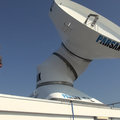
Heavy showers sweep over cities, flooding streets and houses when urban drainage systems get overwhelmed. Ever-increasing pressures from climate change, population growth and changes in land use augment the risks of urban floods. We’re currently unable to predict accurately where and when flooding will occur. Forecasting is particularly tricky in densely populated cities, where rainfall observations are scarce, spatial variability in land-cover is high and flood response to rainfall is very fast. Researchers want to use radar and innovative ground sensors to observe rainfall and water levels more accurately and at higher density to improve the reliability of hydrological predictions . Marie-Claire ten Veldhuis is trying to gather this information in various projects. Her objective is to unravel the complexity of urban hydrological response, to be able to predict with greater accuracy when and where streets will flood.
02 December 2019
Water lust and nuisance
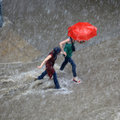
Reliable tap water, proper waste water treatment, and dry feet. That’s what people in the Netherlands expect and are accustomed to. However, flooded homes, sewer overflows and impassable roads occur with increasing frequency. The Randstad conurbation has suffered from severe water issues in recent months for instance. The KNMI [Royal Netherlands Meteorological Institute] has predicted that the number of extreme showers will further increase in the 21st century due to global warming. The water infrastructure in our urban areas isn’t built to accommodate this, warns Professor Jules van Lier. He argues in favour of smarter solutions and a new paradigm for our Urban Water Infrastructure.
30 November 2019
Sinking sea water and rising sea level
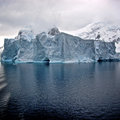
In 2014 Caroline Katsman was awarded a Vidi grant to conduct research into the influence of ocean whirls on surface water sinking. How is she getting on two (and a bit) years later? ‘2017 is going to be a bumper year, with a number of new papers in the pipeline,’ Katsman says.
27 November 2019
Measuring air pollution street by street
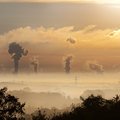
"My research focuses on the use of remote sensing data to improve the modelling of air quality in polluted areas such as the Rijnmond near Rotterdam that is known to have the highest level of air pollution in the Netherlands. Everything is jammed together there: traffic, power stations, shipping and industry. The area is the most relevant one in the country for research into determining air pollution. Incidentally, we also focus on other countries: we want to implement our approach in New Delhi, one of the world’s most polluted cities.
25 November 2019
BRIGAID: Solutions for extreme climate events
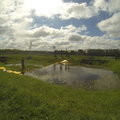
Climate scientists are predicting an increase in droughts, floods and other extreme weather events as a result of continuing global warming. BRIGAID (Bridging the gap for Innovations in Disaster Resilience), an ambitious programme initiated by a partnership of European universities, research institutes and businesses in May of this year, is aimed at finding innovative ways of coping with the increased likelihood of natural disasters of this kind. Bas Jonkman (39), Professor of Integral Hydraulic Engineering at TU Delft’s faculty of Civil Engineering and Geosciences will be heading this multifaceted programme for the next four years.